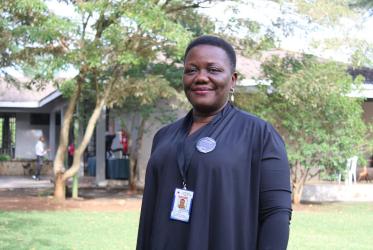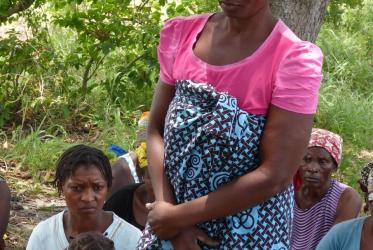Displaying 1 - 19 of 19
African church leaders train in leadership, diakonia and development
12 November 2021
Advancing a disability-inclusive response to COVID-19
21 April 2020
Worrying food shortages compel faith action
19 October 2018
New study lifts up voices of small farmers in Mozambique
24 August 2017
G7 must address famine
22 May 2017
UN discussion focuses on women, HIV and property rights
21 March 2017
Food and land justice focus of Mozambique workshop
19 December 2016
Water justice focus of consultation in Nigeria
29 November 2016
Voices of faith speaking to voices of fear
03 February 2016
WCC and AACC express grave concern over situation in Burundi
18 December 2015
Land rights focus of panel discussion
17 November 2015
Churches in Kenya empower people with disabilities
27 October 2015







